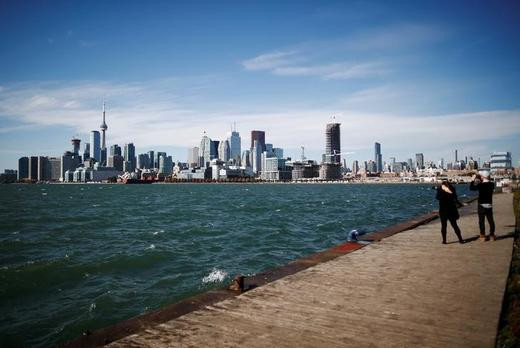On Tuesday, Canada increased its pressure on Russia for its invasion of Ukraine by closing ports to Russian-owned ships and announcing a review of all Russian oligarchs and firms' assets in the nation.
Canada has issued a raft of penalties against Russia, including sanctions against Russian President Vladimir Putin.
Closing Canadian airspace to Russian planes, blocking oil imports, and prohibiting Canadian financial institutions from engaging with the Russian central bank are among the latest sanctions, which are being implemented in unison with other Western countries.
The country's natural resources minister tweeted on Tuesday night that Ottawa had widened its crude oil import ban to include refined petroleum products and "other petroleum products from Russia."
While the number of Russian ships accessing Canadian waters and ports is "minimal," Transport Minister Omar Alghabra previously stated that there will be an impact, especially if other countries follow suit.
According to a port official, Russia accounts for less than 2% of annual containerized volumes at the Port of Montreal, and the restriction will have little commercial impact.
The number of Russian-flagged ships stopping at the busiest port in Canada, Vancouver, is negligible. Previously, they exchanged crude oil, canola oil, and copper concentrates, according to a spokeswoman.
A government official told Reuters that Canada is watching three Russian-flagged vessels off the East Coast, one of which is a cargo ship.
Finance Minister Chrystia Freeland told reporters on Tuesday that Canada is also looking at the assets of all Russian billionaires and Russian enterprises in the country.
"We're reviewing them," Freeland said, adding that "all options are on the table."
Ukraine will receive 1,600 bulletproof jackets and nearly 400,000 meal rations from Canada.
According to Statistics Canada, Canada bought C$2.14 billion ($1.68 billion) in products from Russia in 2021, with metals and minerals being among the most expensive categories.
According to the agency, it bought Russian energy goods worth C$289 million last year.
Meanwhile, a large Russian military convoy gathered on the outskirts of Ukraine's capital on Tuesday, raising worries that invading forces were planning deadly assaults on Kyiv and other key cities.
As Moscow fought rising international pressure and a wave of international sanctions that have wrecked Russia's economy, satellite photographs indicated a protracted build-up of armored vehicles and artillery beginning 29 kilometers (18 miles) north of the city.
After initial ceasefire discussions between Moscow and Kyiv on Monday failed to produce a breakthrough, Russia shelled residential areas in Ukraine's second city Kharkiv and other parts of the nation.






